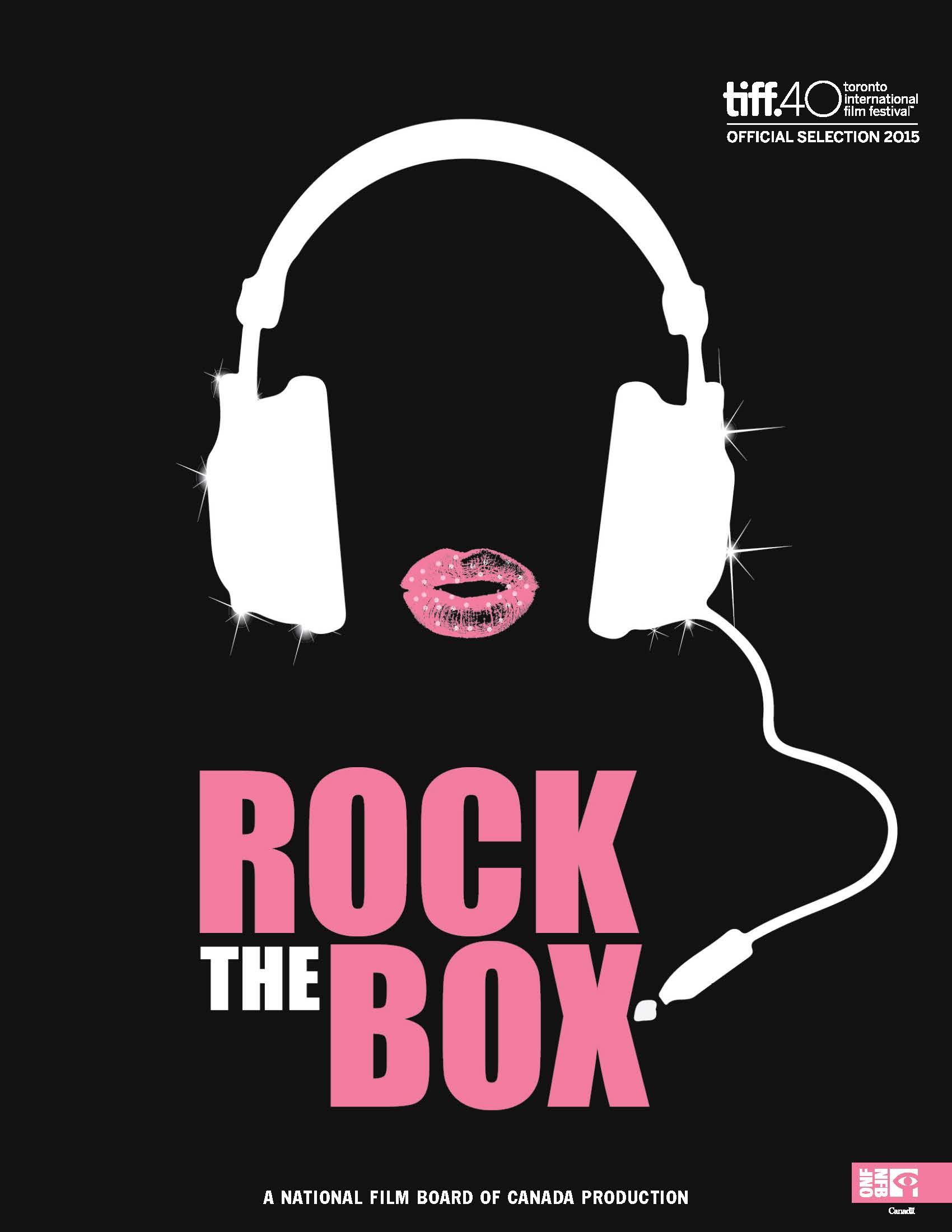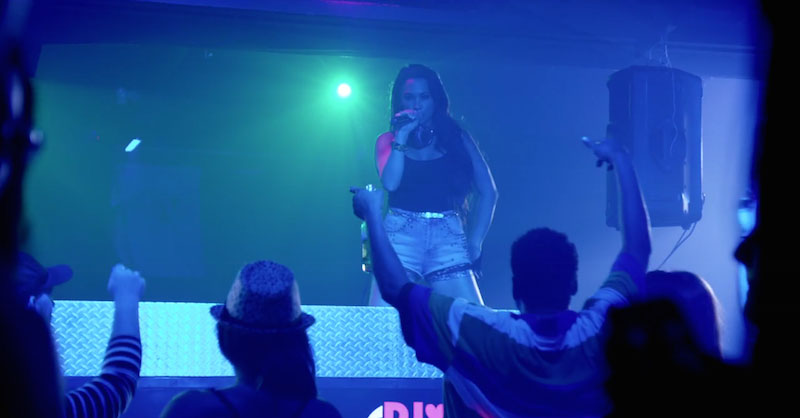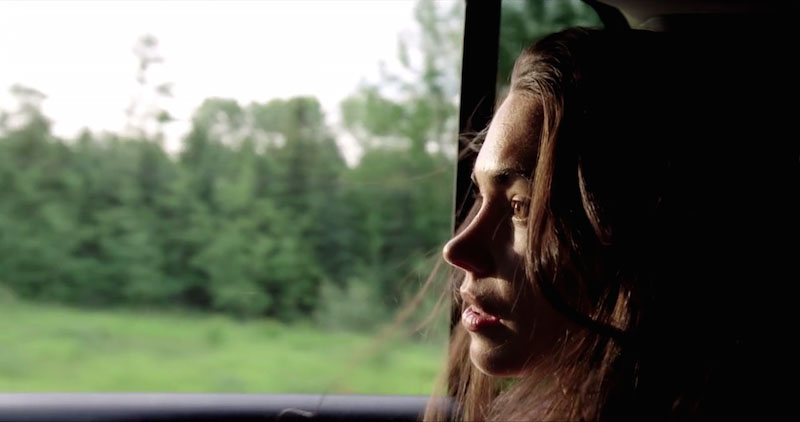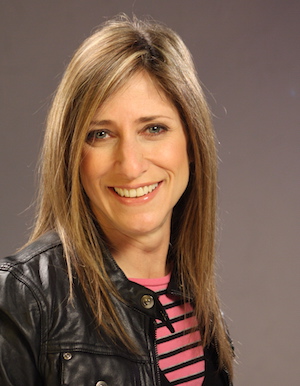Directed by Katherine Monk –
For Rhiannon Rozier, a twenty-nine-year-old university grad with a degree in political science and Latin American history, the quest to enter the man-fortress of the DJ booth will force her to confront an old feminist dilemma: use your sexuality and get noticed, or linger in the shadows.
GFM:
DJ Rhiannon is Canada’s number one female DJ. How did you become interested in her story?
Katherine:
I was contacted by a producer at the National Film Board to see if I was interested in researching a documentary about female DJs and why they haven’t been getting the same kind of media attention as their male counterparts. So we researched a bunch of female DJs; I started interviewing female DJs three years ago and though all of them had a variety of experiences, they all felt they’d sort of hit a glass ceiling. When we realized we were going to just do a short film, we really had to focus on one person. Out of all of the people I’d spoken to, DJ Rhiannon had the most exaggerated experience — it was the one that seemed to be the most bizarre and really seemed to take a magnifying glass to some of the problems of endemic sexism that the other women were facing.
GFM:
Would it be fair to say that Rhiannon was forced to use her sexuality to compete in the male dominated industry by posing in Playboy?
Katherine:
Absolutely. There are a lot of women who didn’t use their sexuality. Every woman is finding her own road through the minefield of the industry and trying to figure out what the best way to go through it is. So one of the DJs I’d spoken to, she won the Laptop Challenge in New York, which is a geeky kind of thing, and she didn’t have to take off her clothes. But everybody has to find their own route, and Rhiannon didn’t really seem to be able to get ahead without making a big decision to do Playboy and get on the Playboy club circuit.
GFM:
What’s interesting is that her attitude in the film seems to be that ‘if you can’t beat them, join them’ where she doesn’t seem to be protesting the situation, she’s just saying that she’s going to use every asset available to her to succeed.
Katherine:
I think that’s right. I don’t know if you’re familiar with Fort McMurray? Fort McMurray is where all our oil sands are — it’s where all of the dirtiest oil in the country comes from. Americans won’t even buy the oil that comes from Fort McMurray because it’s the tar sands. But we live in a world where we exploit natural resources, right? We live in this society, and this grid, and this assignment of how we value each other. We got to shoot in Fort McMurray, which is a place where we make these huge compromises to live in an oil economy, one of them being that we’re destroying our environment to pull out oil, but what is it about? It’s a story of natural resource exploitation.
So if Rhiannon is the metaphor of Mother Earth, she had to sort of go out there and sell the dirty oil in order to get ahead, and that’s the reality we live in. As a feminist, I certainly went through a lot of my own personal challenges trying to understand the decision she made, but over the course of making this film, it’s like wow, why am I judging people, why shouldn’t I judge the box? Don’t judge the person, judge the box that assigns each one of us a value. Like how does our society assign value to people and women? It wasn’t her skill set that was valued, it was her body, so why shouldn’t she go out there and exploit the natural resource that she had?
GFM:
Can you talk about NFB’s involvement in Rock The Box and your work with them?
Katherine:
The National Film Board of Canada, one of those organizations that’s sort of iconic, especially where I grew up, in Montreal where the National Film Board offices are. It’s the first time I ever saw an Oscar statuette because they won all those animation Oscars, and when you’re a kid growing up in Canada, you watch all these National Film Board documentaries as part of the curriculum. So it was actually a National Film Board and in-house film board producer, Jennifer Roworth, who was a female DJ. She was the first person to contact me because I’d been a journalist and she knew that I could research subjects.
So it was the National Film Board that originally came to me and they kept telling me it’s not a commission, it’s just sort of like “are you interested in pursuing this topic? Let’s see if we can move forward with you”. So I was absolutely thrilled! And especially with the Film Board. Canadian production is sort of an orphaned child at the best of times, and the National Film Board is like the orphanage. It’ll take you in, it’ll put a roof over your head, it’ll make sure that you’re not going to starve, so to move forward with my first film under the National Film Board roof was just such a blessing, I couldn’t have asked for a bigger gift than working with the NFB.
GFM:
The first line on your website says that you’re in the midst of a life reboot, can you elaborate on that?
Katherine:
I was a career journalist for 25 years. I worked for Post Media, which is the largest news organization in Canada, and I worked for that company for 25 years. I think everybody in traditional media knows that you keep waiting for the other shoe to drop. So I came back from Sundance this year in February and my boss called me in and was like, “I’m sorry, it’s over, we just don’t have room for movie critics anymore.” So I was terminated after 25 years for financial reasons, but I have to say, it was the biggest gift ever because after 25 years I think you’re kind of done with one part of your life it’s time to move on. So it feels like a huge gift.
GFM:
Now that you’ve spent time in the director’s chair, what are your plans to return to directing?
Katherine:
I’m going to keep developing stuff and I’ve got a lot of friends. Over the last 25 years, there’s been no shortage of great stories. During my entire professional career as a journalist I came across so many fascinating stories that I thought would make great movies, so that’s sort of where I’m at now. I also just launched a website with my colleagues called the Ex-Press.com for former journalists to express themselves. Yeah, I’m kind of just taking it one step at a time; I’m not trying to rush ahead, right now I’m just really enjoying this particular moment in time, this is a total high and I might never get into the Toronto Film Festival ever again so I’m really going to enjoy this moment as much as I can.



